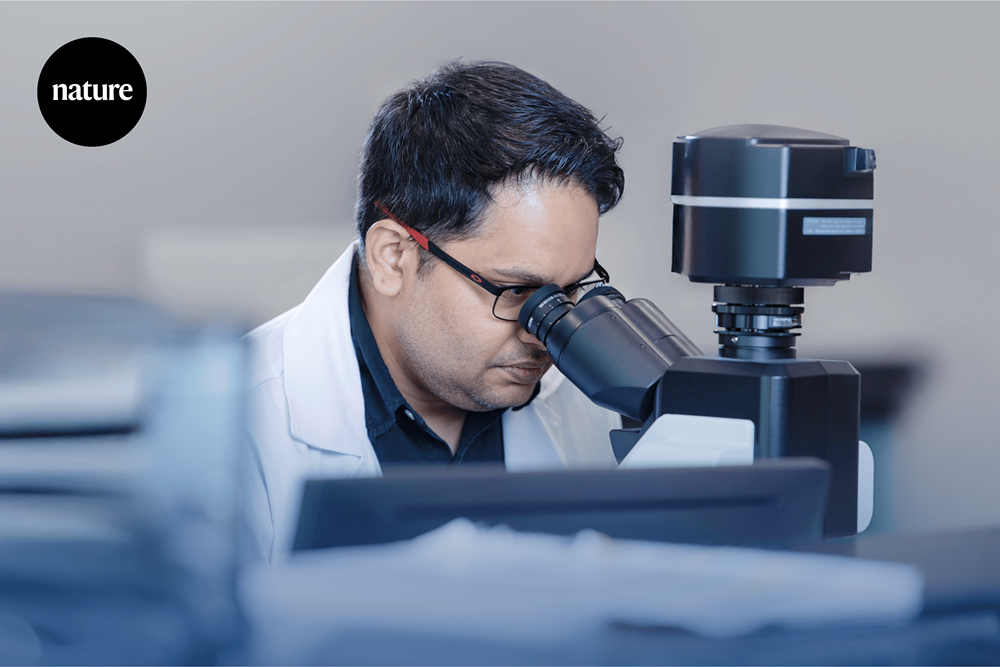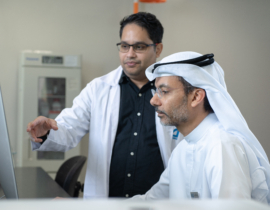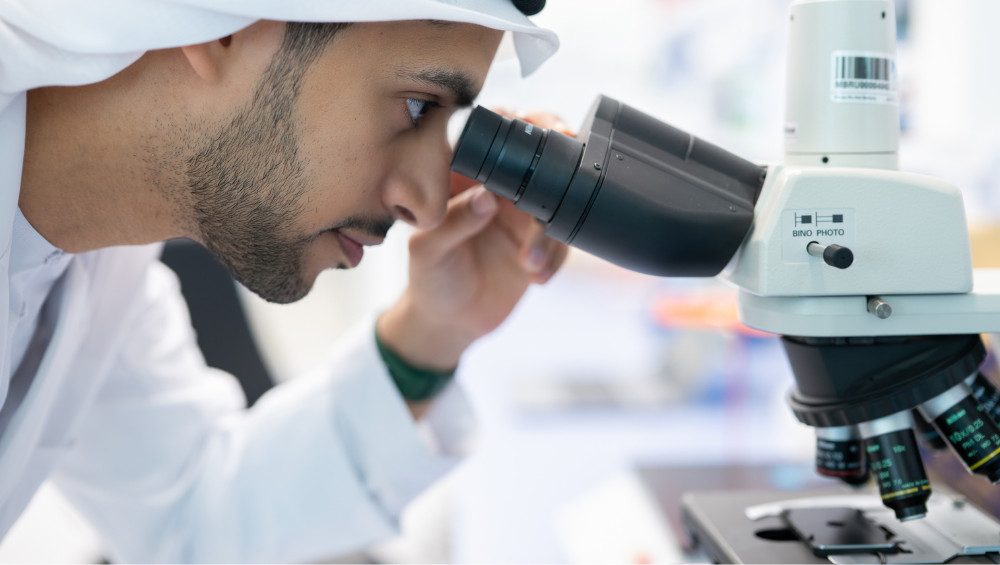Dubai Health scientists publish first Arab Pangenome Reference, marking a milestone for precision medicine
 The first Arab Pangenome Reference has been published by researchers at Mohammed Bin Rashid University of Medicine and Health Sciences (MBRU), the learning and discovery arm of Dubai Health. This publication marks a major milestone in both regional and global genomic research, while also supporting the UAE’s National Genome Strategy, a decade-long initiative by the Emirates Genome Council to drive personalized, preventive, and precision healthcare through advanced genomic science.
The first Arab Pangenome Reference has been published by researchers at Mohammed Bin Rashid University of Medicine and Health Sciences (MBRU), the learning and discovery arm of Dubai Health. This publication marks a major milestone in both regional and global genomic research, while also supporting the UAE’s National Genome Strategy, a decade-long initiative by the Emirates Genome Council to drive personalized, preventive, and precision healthcare through advanced genomic science.
The study, published in Nature Communications, was conducted at MBRU’s Center for Applied and Translational Genomics (CATG). Developed from high-quality DNA sequencing of 53 individuals from diverse Arab. Scientists at the Mohammed Bin Rashid University of Medicine and Health Sciences (MBRU), the learning and discovery arm of Dubai Health, have published the first Arab Pangenome Reference, marking a major milestone in both regional and global genomic research. The study, released in Nature Communications, a leading scientific journal, provides a crucial foundation for advancing precision medicine and personalised healthcare for Arab populations, while also supporting the UAE’s National Genome Strategy, a 10-year initiative launched in 2023 by the Emirates Genome Council to advance personalised, preventive, and precision healthcare through cutting-edge genomic science.
The reference was built using high-quality DNA sequencing from 53 people of diverse Arab backgrounds in the UAE. The work, conducted in MBRU’s state-of-the-art Center for Applied and Translational Genomics (CATG), uncovered over 110 million base pairs of novel DNA sequences and identified nearly nine million small differences and more than 235,000 larger structural differences specific to Arab populations that have not been reported before. These findings are significant, as global DNA references have historically underrepresented Arab populations — a gap this research helps to close.
The Arab Pangenome Reference supports national and regional precision medicine initiatives by enabling the development of population-specific biomarkers, risk models, and therapeutic targets. One notable discovery was the duplicated gene TAF11L5, found highly enriched in Arab individuals studied but absent from global references. This gene may play a role in regulating other genes and could have implications for understanding disease risk and individual variation in treatment response.
Professor Alawi Alsheikh-Ali, Director General, Dubai Health Authority, and co-author of the study, said: “This achievement strengthens the UAE’s position in genomic science. By building a reference that reflects the genetic diversity of Arab populations, we are enabling more precise and equitable healthcare. It’s a foundational step towards realising the goals of our National Genome Strategy and ensuring that future medical innovations are shaped by data from our own communities.”
Dr. Hanan Al Suwaidi, Acting Provost of MBRU, and co-author of the study said: “The capabilities of the CATG lab were central to the success of this project. From genetic sequencing to advanced bioinformatics, every stage of the research was completed in-house. This level of integration gave us full control over quality and timelines, reflecting Dubai Health’s commitment to building world-class infrastructure and fostering national scientific leaders.”
While genomic research has advanced rapidly over the past two decades, much of the foundational data has come from a narrow subset of global populations. This has created blind spots in how genetic risk is understood and addressed across different communities. The Arab Pangenome Reference contributes to a growing international effort to correct this imbalance by introducing high-quality data from a historically underrepresented population.
Dr. Mohammed Uddin, Director of CATG and Associate Professor of Genetics at MBRU, and senior author of the study, said: “This pangenome reference marks a major advancement in our understanding of Arab genomic diversity. It serves as a critical resource for both research discovery and clinical genome diagnostics, with lasting impact for future generations across the region.”
The project also developed ‘PanScan’, a bioinformatics tool to support more complex analysis of human pangenomes. Although not the central focus of the study, PanScan enables researchers to detect gene duplications, novel DNA changes, and complex DNA structures. Now publicly available on GitHub, a common resource used by scientists worldwide, the tool was created to support the Arab Pangenome Reference and similar efforts globally.
Dr. Nasna Nassir, lead author of the study and Assistant Professor at MBRU, said: “To support the Arab Pangenome Reference study, we developed PanScan, a tool designed to identify novel variants, gene duplications, and complex haplotype patterns specific to Arab populations. PanScan was key to uncovering unique genomic insights in our study and is now publicly available to support similar research globally.”
The research reflects Dubai Health’s commitment to advancing learning and discovery through MBRU. The university’s research strategy is focused on contributing to global scientific progress. By investing in foundational genomic research, Dubai Health is helping to ensure that Arab populations are represented in the future of precision healthcare.
The full study is available here.


